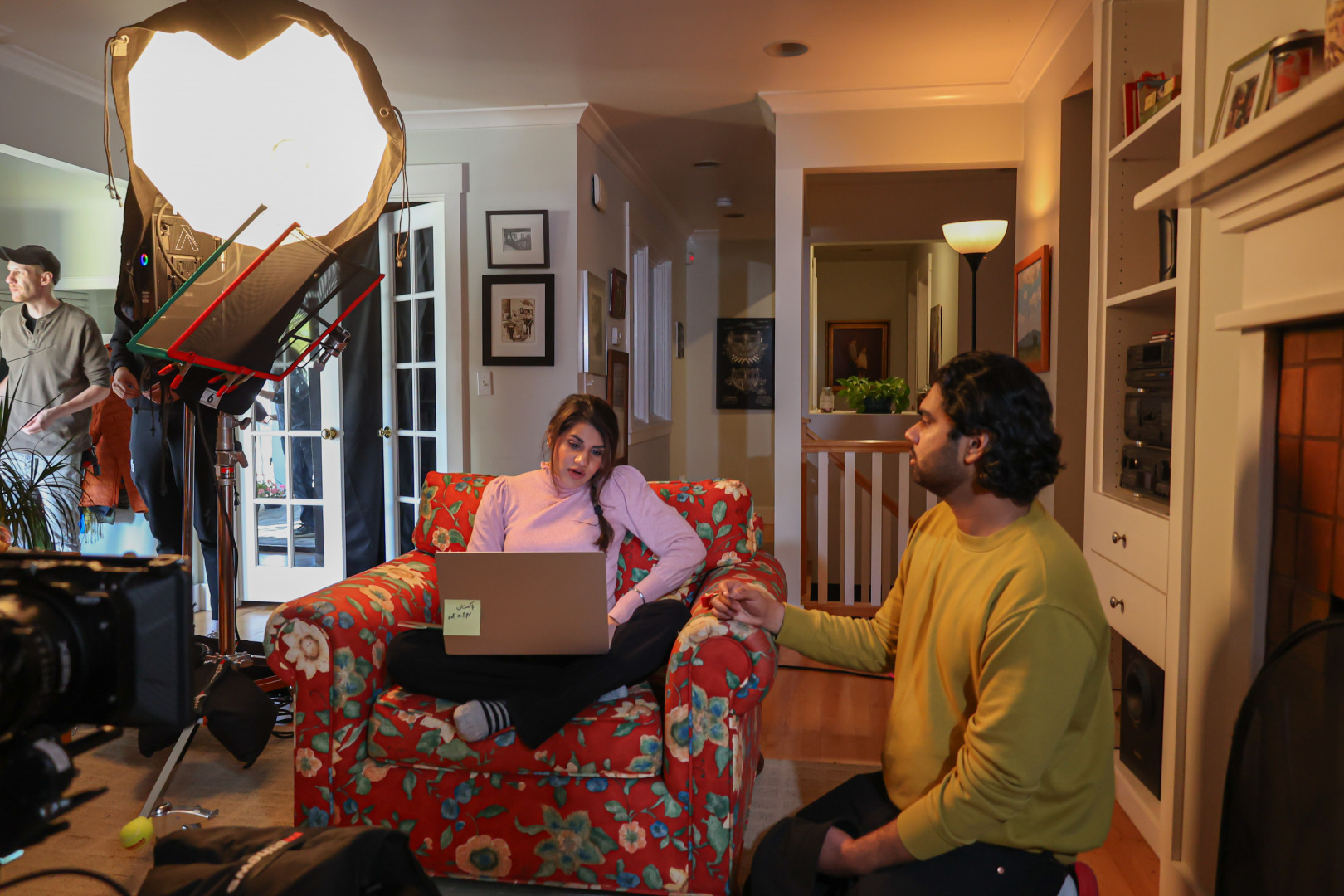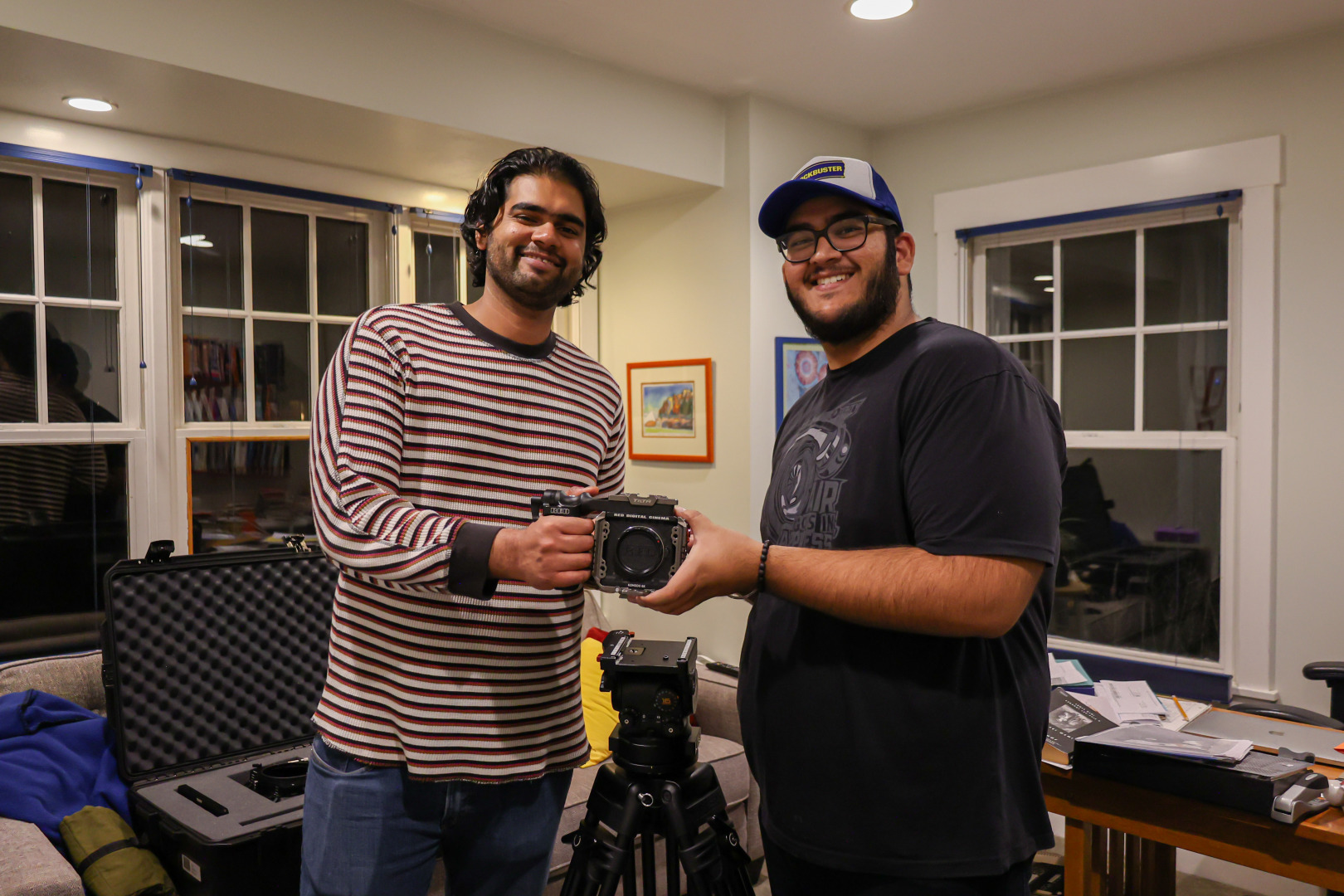Meet Mustafa Bin Javed | Filmmaker (writer, producer, director, & editor)


We had the good fortune of connecting with Mustafa Bin Javed and we’ve shared our conversation below.
Hi Mustafa Bin, why did you decide to pursue a creative path?
I pursued a creative career because growing up in a deeply conservative society in Pakistan, I often felt I had no true outlet to express what I was thinking or feeling. In a culture where pursuing the arts was discouraged, my early dream of becoming a filmmaker was dismissed outright by peers and even extended family, pushing me into years of self-doubt. But filmmaking eventually became my way to reclaim a voice. In this medium, I could explore the complexities of identity, memory, and belonging that surrounded me but were rarely discussed openly. With the unwavering support of my mother, I was able to pursue film not just as a passion, but as a means of asking hard questions and giving shape to silences. Today, I see filmmaking as more than a craft; it’s my way to humanize stories too often reduced to stereotypes, and to bridge gaps between cultures through intimate, honest storytelling.

Alright, so let’s move onto what keeps you busy professionally?
My art is ultimately about finding meaning in the ordinary, capturing subtle emotional undercurrents that might otherwise go unnoticed. I’m drawn to exploring the silences between people, the details that quietly expose love, grief, pride, or pain. Whether working with documentary or fiction, I’m always trying to craft images and moments that linger, inviting audiences to look closer and feel more deeply.
What perhaps sets my work apart is a willingness to stay with discomfort. I’m less interested in clean resolutions and more fascinated by messy contradictions, how people can be tender and flawed at once, how communities can nurture but also wound. That perspective comes from my own lived experience, navigating layered identities and conflicting expectations. I don’t believe in telling a story that is welcomed by the popular culture, but question the ones in power, and explore how we can become better.
Getting here wasn’t smooth. I always knew I wanted to study film in an academic environment, not just to learn how stories are crafted, but why. From the beginning, there was nothing else I felt so passionately called to pursue. But in my home country, opportunities to formally study film were scarce.
My first breakthrough came when I was selected for an international fellowship at the prestigious Busan Asian Film School in South Korea. I was the only Pakistani chosen for their International Film Business Academy, which brings together carefully selected film producers from across Asia. I received a scholarship for this fellowship as well, and it was a proud moment to represent my country on such a meaningful international stage, as a filmmaker and as a voice from Pakistan.
When I set my sights on earning a master’s degree abroad, the financial reality felt like an insurmountable barrier. That’s why being accepted into the MFA program at the University of Utah, with full funding, was such an extraordinary turning point. Being selected by one of the top film schools in the U.S. felt like a deeply personal achievement. It meant my work stood out and was recognized at the level I had always hoped for. Moving to the U.S. to immerse myself in film theory and practice was the best decision I could’ve made. It didn’t just teach me how to make better films; it opened up an entirely new way of seeing the world, myself, and the kind of stories I want to tell.
I’m especially proud of how my work has started conversations across different cultures and been selected at international film festivals, allowing me to represent my stories across the globe. I want people to know my films aren’t just for or about one place; they’re small invitations to pause, empathize, and maybe reconsider what they thought they knew about someone else’s world.
Ultimately, I believe that’s what art is, to illuminate our common fragilities, and to remind us that we’re far more connected than we often realize.

If you had a friend visiting you, what are some of the local spots you’d want to take them around to?
If my best friend came to LA for a week, I’d keep it simple and fun, the kind of trip where you soak up the city’s film vibes. We’d start at Griffith Park; it’s the best spot to view the iconic landmarks of the city. I’d take him to wander around Silver Lake or Echo Park for good coffee and vintage shops. Knowing my best friend, he loves the beach, and I think afterwards I’ll be taking him to the Santa Monica Beach. I go there from time to time, just to watch the amazing sunset. Food-wise, I’ll take him to one of my favorite taco places, Papi Taco & Churros. Honestly, the best part would be just hanging out, talking movies, and letting the city’s film history be the backdrop.

The Shoutout series is all about recognizing that our success and where we are in life is at least somewhat thanks to the efforts, support, mentorship, love and encouragement of others. So is there someone that you want to dedicate your shoutout to?
There are many people and forces I owe my journey to, but first and foremost, I must dedicate this shoutout to my mother. In Pakistan, where cultural values often overshadow personal dreams, pursuing film was seen almost as a taboo. Like many others, I was also expected to become a doctor, a lawyer, or an engineer. Becoming an artist was frowned upon, and dreaming of becoming a filmmaker was a big no-no! Since film was considered not only an unstable career but was often considered to be a means of rebellion and a propaganda tool by people, as a threat to their ideologies. While people around me dismissed and criticized my passion, it was my mother who recognized how deeply storytelling lived inside me. Her unwavering belief not only gave me the courage to choose an artistic path but also shielded me at moments when I doubted myself most.
I also owe immense gratitude to my mentors, most of whom were women who challenged me intellectually and artistically. From my early thesis on the Portrayal of Patriotism in Indo-Pak Films to my later research into Content Analysis of post-9/11 pro and anti-war films, it was these educators and mentors who expanded my understanding of how cinema shapes and sometimes distorts public consciousness. Their encouragement transformed me from someone who just wanted to make movies into a researcher and filmmaker committed to nuanced, socially urgent storytelling.
Finally, I must recognize the audiences and festival communities around the world who’ve embraced my work. Seeing films that wrestle with themes like minority identity, masculinity, and migration connect with viewers in places as far-flung as Kyrgyzstan, South Korea, and Australia has been profoundly humbling. It reminds me that while my stories are deeply personal, their emotional truths often reach far beyond me, and for that, I’m grateful to every person who’s watched, questioned, or resonated with what I’ve created.
Website: https://mustafabinjaved.com
Instagram: https://www.instagram.com/mustafabinjaved/
Linkedin: https://www.linkedin.com/in/mustafabinjaved/
Facebook: https://www.facebook.com/mustafabinjaved
Youtube: https://www.youtube.com/@MustafaBinJaved



